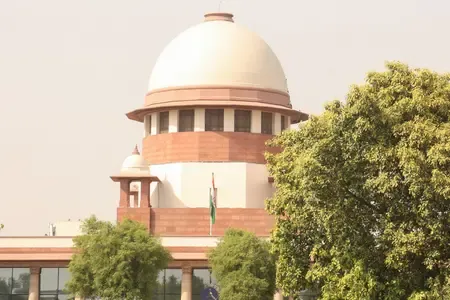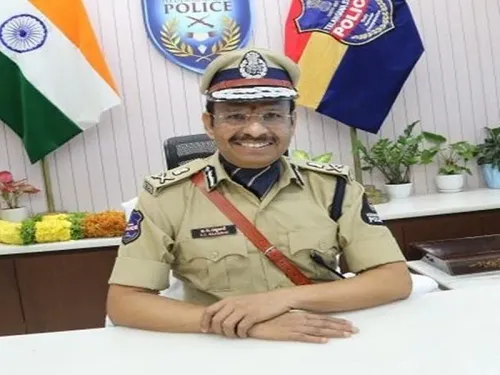Will the Supreme Court Decide on the Release of 'Udaipur Files' on Monday?

Synopsis
Key Takeaways
- The Supreme Court will hear the plea regarding 'Udaipur Files' on Monday.
- The film is based on the real-life murder of Kanhaiya Lal.
- Concerns have been raised about potential bias in ongoing legal proceedings.
- The Delhi High Court temporarily stayed the film's release prior to its scheduled launch.
- Public order and freedom of expression are at stake in this case.
New Delhi, July 20 (NationPress) The Supreme Court is set to continue its hearing on Monday regarding a petition from the producer of the film 'Udaipur Files'. This petition challenges the Delhi High Court's ruling that temporarily halted the film's release, which is centered around the Kanhaiya Lal murder case.
Originally scheduled for release on July 11, the film narrates the shocking murder of Kanhaiya Lal, a tailor in Udaipur, who was killed in June 2022 by Mohammad Riyaz Attari and Ghaus Mohammad in a gruesome attack.
According to the court's published causelist, a Bench comprising Justices Surya Kant and Joymala Bagchi will also consider a plea from Javed, one of the accused in the murder case. He is seeking to halt the film's release, arguing that it could bias the ongoing trial processes taking place in the Special NIA court.
During the previous hearing on Friday, Justice Kant directed the committee established by the Centre under Section 6 of the Cinematograph Act to act “immediately” on the revision pleas challenging the certification of the contentious film granted by the Central Board of Film Certification (CBFC).
He urged all parties to engage in the Centre's review process and provide complete cooperation for a swift resolution of the revision petition.
Setting the next hearing date for July 21, the Apex Court commented, “We can wait for some time. We have been informed that a committee is in place, and the Union is reviewing it. Should the Union conclude that the film poses no issues, we will reconsider. If cuts are recommended, we will evaluate those as well. If the Centre was not pursuing this matter, that would be a different situation.”
Legal representatives involved in the case noted that, so far, the Union government has not made its stance clear regarding the revision plea filed under the Cinematograph Act, 1952.
Just a day before the film’s planned release, the Delhi High Court issued a ruling on July 10, temporarily preventing the film's debut until the Centre addresses the revision petition challenging the CBFC certification.
A Bench including Chief Justice D.K. Upadhyaya and Justice Anish Dayal was reviewing several pleas, including one from Maulana Arshad Madani, the President of the Jamiat Ulema-i-Hind, requesting the annulment of the CBFC certification for the film.
According to Maulana Arshad Madani's petition, the CBFC certification was issued contrary to Section 5B of the Cinematograph Act, 1952 and the Guidelines for Certification of Films for Public Exhibition. The film’s release could potentially incite communal tensions and disturb public order, thereby jeopardizing the nation’s religious harmony.
The Chief Justice allowed both petitioners and the public to submit revision pleas to the Union government within two days as per Section 6 of the Cinematograph Act.
The Delhi High Court instructed the Centre to rule on the revision pleas within a week, allowing for a hearing with the producer.









